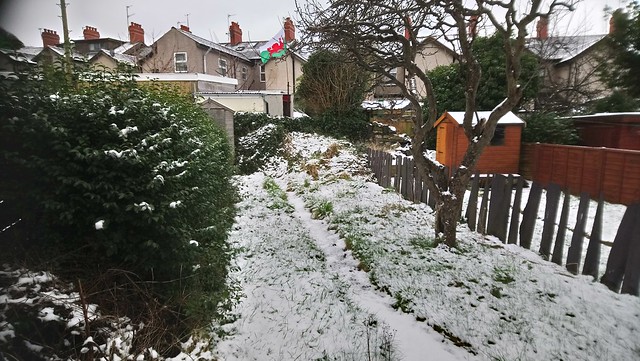As there has been some snow here this week, and it’s snowing at bit as I write this, I thought I’d look at some words for snow.

A bit of snow in my garden yesterday morning
In Romanian snow is zăpadă [zəˈpadə], which comes from the Slavic word zapadati (to fall) [source]. To snow is a ninge, and snowfall is ninsoare, which both come from the Latin ningere (to snow), utimately from the Proto-Indo-European *sneygʷʰ- (to snow) [source].
The English word snow comes from Middle English snow/snaw, from the Old English snāw (snow), from the Proto-Germanic *snaiwaz (snow), from the Proto-Indo-European *snóygʷʰos (snow), from the root *sneygʷʰ- (to snow).
Many of the words for snow in other European languages come from the same Proto-Indo-European root. However, words for snow in Welsh (eira), Cornish (ergh) and Breton erc’h, come from the Proto-Celtic *argyos (white), via the Proto-Brythonic *ėrɣ (snow) [source].
In Finnish, snow is lumi. There is no corresponding verb, but we say “lunta sataa” (it rains snow).
The word has cognates in other Uralic languages, which can be seen in Wiktionary.
In Japanese, snow is 雪 yuki.
Coincidentally, both Finnish Lumi and Japanese Yuki (although with several ways of writing) are female given names, and I find both names beautiful.
In Russian, there is no verb for snowing, either. Instead, snow “goes”, and so does rain. In Hebrew, snow and rain “descend”.
Actually, in Russian snow can both “go” (идёт снег) and “fall” (падает снег), though the first form is more frequent. Rain, on the other hand, either “goes” (идёт дождь) or “pours” (льёт дождь), but never “falls”.